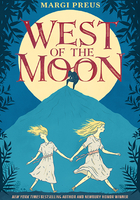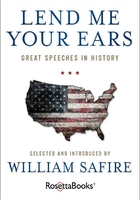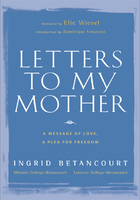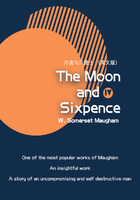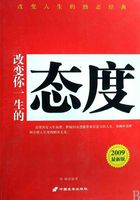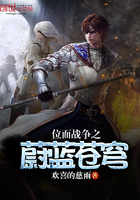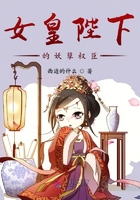A Soldier
That Americans are entitled to freedom is incontestable upon every rational principle.
—Alexander Hamilton
On July 2, 1776, the Second Continental Congress in Philadelphia voted in favor of independence. The delegates spent several days revising the Declaration of Independence, which they adopted on July 4. The next day, the declaration was printed in a shop in Philadelphia, and copies were dispatched to the thirteen colonies. Meanwhile, Admiral William Howe was preparing to unleash the full force of the Royal Navy—the mightiest in the world—against the colonists to crush the rebellion. General Howe, in command of a British fleet, landed on Staten Island, just across the harbor from New York City. He was joined by British ships from Lower New York Bay, bringing his total force to three hundred ships and 32,000 troops. Tensions in New York City ran high.
Knowing the city would soon be invaded, Alex left college to enlist full-time in New York's militia. He informed Knox and the others on the island of St. Croix who had contributed to his education by publishing a letter in the Royal Danish American Gazette, evoking the possibility of a hero's death in the service of his new country:
I am going into the army and perhaps ere long may be destined to seal with my blood the sentiments defended by my pen. Be it so, if heaven decree it. I was born to die and my reason and conscience tell me it is impossible to die in a better or more important cause.
When the colony of New York formed an artillery company, Alex wanted to be in command. Having run a multinational shipping and trading company, he felt perfectly qualified, despite his youth. Several of his highly placed friends agreed and pooled their influence behind him.
He was commissioned as a captain on the condition that he enlist thirty men. He and his friend Hercules Mulligan enlisted twenty-five the first day. Soon they had sixty-eight. Alex threw himself into organizing, training, and disciplining his troops, using knowledge gleaned from the books he'd read on warfare. He wrote letters asking for an increase in pay for his men to make it easier to recruit new soldiers, and he wrote letters to secure proper uniforms. Always careful about his own appearance, he believed that solders must be dressed smartly if they were to perform like professionals. He got everything he asked for, outfitting his men in dashing blue coats, buckskin trousers, and white belts crisscrossing their chests.
His administrative skills came to the attention of Brigadier General William Alexander, known as Lord Stirling, who wanted Alex to become his aide-de-camp, the term for a high-ranking military officer who acts as a confidential assistant to a senior officer. Alex refused. The last thing he wanted was a dull desk job, which would feel like being a clerk again and groveling to someone else. He wanted action, glory, and rapid advancement. It was rumored that another general, Nathanael Greene, also asked Alex to become his aide.
Several battles were fought in New York that summer and fall. During the Battle of Harlem Heights, Alex and his men fought alongside General George Washington. The Continental Army, outnumbered and outmaneuvered, suffered devastating losses. Alex and his men were with Washington when, badly beaten, he withdrew the weary Continental Army across New Jersey toward Philadelphia. They abandoned New York City to the British, leaving many New Yorkers convinced that the British were invincible.
There are differing accounts as to when Washington first became aware of Alex. One historian suggested that General Greene told Washington about him. According to another report while preparing for the Battle of Harlem Heights, Washington first noticed Alex's organizational talents as he watched him supervise the building of an earthen embankment.
On January 20, 1777, General Washington asked Alex to serve as one of his personal aides-de-camp with a promotion to lieutenant colonel. While Alex wanted to be a war hero and didn't like the idea of being a subordinate or taking a desk job, he couldn't resist the promotion. It was, after all, no small thing to be aide-de-camp to General Washington himself, who was commander in chief of the entire Continental Army, and who was already an internationally known and widely respected figure. Besides, Washington made clear that his aides were expected to do more than relay orders. He required all his aides to be skilled writers, well educated, cultured, and intelligent, with "the soul of a general"—able to think for him, compose letters, and respond to emergencies with little or no direction.
George Washington was badly in need of administrative help. He was not only in command of the army; he had to act as a high-level diplomat, placating the new Congress and preventing individual states—who had yet to really pull together as a single nation—from becoming jealous of one another. He once remarked, "My time is so taken up at my desk that I am obliged to neglect many other essential parts of my duty; it is absolutely necessary ... to have persons that can think for me, as well as execute orders."
Alex became one of a handful of Washington's aides-de-camp, who included such luminaries as the Marquis de Lafayette, a French aristocrat who came to fight on the side of the colonists. Washington referred to his aides as his military family. The aides shared a room for sleeping and a room for working. Friends and colleagues now referred to Alex by his last name. As the youngest of the aides-de-camp, the others nicknamed him "Ham" or "Hammie." He still looked so young that one observer described him as a boy. He and his fellow aides-de-camp developed a strong bond and sense of brotherhood and became lifelong friends. Many would play important roles in the building of the new nation.
Hamilton and Washington had complementary personalities. Washington was cool, aloof, and quiet, giving the impression of dignity, while in fact he felt awkward in social situations. He enjoyed the company of men like Hamilton, who were talkative and outgoing, prone to joking and warm camaraderie. While Hamilton pored over books and easily absorbed complex theories, Washington, a gifted military leader, didn't have the patience for philosophy. A man of action, Washington surrounded himself with thinkers and talkers.
The job of Washington's aide-de-camp was perfect for Hamilton, with his gift for letter writing, his speaking skills, his depth of knowledge, and his experience in international business. As one of Washington's right-hand men, he communicated regularly with the highest-ranking leaders of the new nation. He compiled intelligence reports based on information from released prisoners and exchanged twice-weekly reports with the leaders of New York about the progress of the army. He drew up a plan for reorganizing the army, drafted a set of new military regulations, and negotiated prisoner exchanges with the British. His native fluency in French allowed him to communicate with French soldiers who came to fight for America. He had no family to visit, so he lived at the army headquarters, never taking a day off. Soon he advanced to become something akin to Washington's chief of staff—in Washington's words, his "principal and most confidential aide."
Hamilton's position allowed him to see firsthand the workings and flaws of the new American government, including the political wrangling between the states. Things were not going well for the new nation or for the Continental Army. During the difficult winter of 1778 at Valley Forge, the army was underfed, insufficiently clothed, and worn down with fatigue and illness—2,500 soldiers died, and thousands more were without food, firewood, and shoes. Something had to be done if the bedraggled and starving army hoped to win a war against the British Empire.
Hamilton and John Laurens, one of his fellow aides-de-camp and closest friends, believed that if slaves were given their freedom in exchange for fighting for American independence, the army would at once have enough men to defeat the British. Laurens, the son of a wealthy and influential South Carolina planter, was an unlikely abolitionist. However, like Hamilton, he believed the institution of slavery was morally wrong, and he understood the hypocrisy of fighting for independence while enslaving a large portion of the population. Besides, as a practical matter, keeping what amounted to an army in slavery for personal profit while the enfeebled Continental Army starved was, to Hamilton, the height of folly.
Hamilton shocked many of his contemporaries by insisting that blacks were not naturally inferior to whites, but instead forced by circumstances into their present inferior status. If blacks were given proper training and the opportunity to fight, Hamilton had "not the least doubt that the Negroes will make very excellent soldiers." His idea that blacks were just as intelligent and capable as whites was radical at the time. Even his contemporaries who wanted to abolish slavery believed that blacks should be returned to Africa or sent elsewhere—perhaps to the West—to build their own communities.
The idea of freeing slaves to fight the British was not met with enthusiasm. Most of the resistance, not surprisingly, came from the southern plantation owners. Because of the cash value of tobacco, indigo, and rice, the southern colonies were the wealthiest in North America—their riches harvested by means of slave labor. The very idea of arming black men and teaching them to fight struck terror into the souls of southern landowners, who in some locations were significantly outnumbered by blacks, and who lived in fear of slave uprisings. Eventually about five thousand blacks—some of whom were already free, others who were granted freedom in exchange for joining the Continental Army—did fight alongside the Patriots, but rarely were they given combat duties or positions of responsibility.
As soldiers starved to death at Valley Forge, Hamilton wrote passionate pleas to Congress for help. When Congress failed to act, Hamilton blamed the shortages on the ineptitude of the Articles of Confederation.
THE ARTICLES OF CONFEDERATION—a predecessor of the Constitution we have today—was the document written in 1777 that outlined America's first government. The new government established by the Articles had no president and no courts. The only federal government was the Continental Congress, which had almost no authority. The states were self-governing. The new nation was thus a loose confederation of sovereign states.
Because the federal government had no way to raise money, it had to scrape together the funds to pay the soldiers by begging for money from the states. The states were reluctant to send money to what seemed like a foreign government. They often kept their best soldiers and military strategists for their own militias as well.
It became clear to Hamilton that unless the states pulled together as a single country and formed a strong central government, they would lose the war. Even if they managed to win the war while in disarray, Hamilton could not see how a stable country could ever emerge from such chaos.
In a misguided attempt to solve its financial problems, Congress printed too much paper money, causing the value of the money to decline until it was almost worthless, which in turn ignited an economic crisis. American farmers often sold their crops to the British instead of to the Continental Army because they didn't trust American currency. Hamilton railed openly against Congress for being incompetent and unable to feed the troops at Valley Forge. He gave in to bouts of depression and despair, writing to John Laurens:
The truth is I am an unlucky honest man, who speaks my sentiments to all and with emphasis. I say this to you because you know it and will not charge me with vanity. I hate Congress—I hate the army—I hate the world—I hate myself. The whole is a mass of fools and knaves.
George Washington, who had no children of his own, felt a particular fondness for Hamilton and treated him like a son. Washington was twenty-three years older than Hamilton, with a much larger build. Washington was steady and serene, a sharp contrast to the moody and emotional Hamilton. Hamilton found much to admire in Washington. While he was close enough to witness Washington's occasional bouts of temper, he saw that Washington was a brilliant general and effective leader. Hamilton approved of the way Washington managed his army. In European armies, as in European society in general, the aristocrats occupied the highest and most prestigious positions. Those of lower birth could rise only so high. Washington, in contrast, rewarded ability regardless of birth, which Hamilton viewed as fitting for a new nation that had declared all men created equal. Hamilton understood that because Washington chose his staff on the basis of merit, he—the illegitimate, immigrant son of a drifter—could rise to the position of chief of staff to General Washington himself.
In time, though, Hamilton grew impatient with his role of aide-de-camp. He longed for glory on the battlefield. He wanted to lift his sword and lead men into battle with colors flying, to the stirring sound of fifes and the pounding of drums. He believed that the military heroes of the revolution would be the ones to forge the new nation in peacetime, and he wanted to be among them. While Washington often let other aides-de-camp lead military commands, he continually refused to allow Hamilton to take a leading role on the battlefield. Washington believed that Hamilton was too valuable to him. He had plenty of people who could lead a charge against the British, but few with Hamilton's administrative and letter-writing talents.
Hamilton came to resent being consigned to a desk job. If he looked to Washington as a father figure, it wasn't always in a good way: He often resented Washington for not letting him do things he wanted to do.
To improve himself, and to prepare for a leadership role in the new government, Hamilton spent his spare time reading the great philosophers: Bacon, Hobbes, Cicero, and others. He read European history, including military history. He read The Universal Dictionary of Trade and Commerce by Malachy Postlethwayt, considered the most important book on trade and economics, a book that taught him the folly of printing too much paper money.
He read about politics, and considered the checks and balances that permitted personal freedom without allowing for the rise of a dictator. Like the other founders of the country, he absorbed the political theories of the English philosopher and physician John Locke, who famously said that government is a contract between the rulers and the ruled—that citizens exchange obedience for safety—but the contract is not binding. The government exists by consent of the governed. It was also John Locke who first said that all people have the right to life, liberty, and property. Inspired by his reading, Hamilton continued his habit of writing letters to men in power, offering advice.
He also took time to keep in touch with the important figures from his childhood. His buddy Edward Stevens had completed his medical training in Scotland and returned to St. Croix, where he became a highly respected doctor. Hamilton also corresponded with Hugh Knox, the minister who had made it possible for Hamilton to come to North America, and who continually expressed his personal pride in the man Hamilton had become. He exchanged letters on occasion with his brother, James, who was a carpenter in St. Croix, sending money when his brother needed it. He also tried to keep in touch with his father, but his father rarely responded. Hamilton assumed that his father kept his distance and remained silent because he was ashamed. Once, in a letter to his brother, after remarking on their father's silence, he said, "My heart bleeds at the recollection of his misfortunes and embarrassments."


